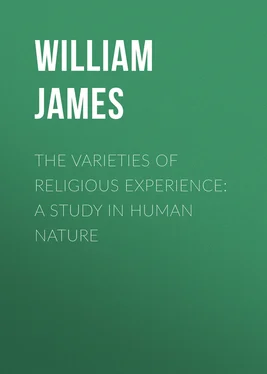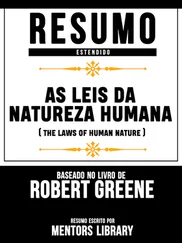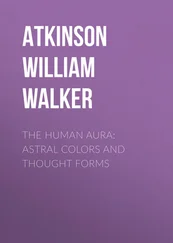William James - The Varieties of Religious Experience - A Study in Human Nature
Здесь есть возможность читать онлайн «William James - The Varieties of Religious Experience - A Study in Human Nature» — ознакомительный отрывок электронной книги совершенно бесплатно, а после прочтения отрывка купить полную версию. В некоторых случаях можно слушать аудио, скачать через торрент в формате fb2 и присутствует краткое содержание. Жанр: foreign_prose, foreign_religion, Философия, foreign_psychology, foreign_antique, на английском языке. Описание произведения, (предисловие) а так же отзывы посетителей доступны на портале библиотеки ЛибКат.
- Название:The Varieties of Religious Experience: A Study in Human Nature
- Автор:
- Жанр:
- Год:неизвестен
- ISBN:нет данных
- Рейтинг книги:4 / 5. Голосов: 1
-
Избранное:Добавить в избранное
- Отзывы:
-
Ваша оценка:
- 80
- 1
- 2
- 3
- 4
- 5
The Varieties of Religious Experience: A Study in Human Nature: краткое содержание, описание и аннотация
Предлагаем к чтению аннотацию, описание, краткое содержание или предисловие (зависит от того, что написал сам автор книги «The Varieties of Religious Experience: A Study in Human Nature»). Если вы не нашли необходимую информацию о книге — напишите в комментариях, мы постараемся отыскать её.
The Varieties of Religious Experience: A Study in Human Nature — читать онлайн ознакомительный отрывок
Ниже представлен текст книги, разбитый по страницам. Система сохранения места последней прочитанной страницы, позволяет с удобством читать онлайн бесплатно книгу «The Varieties of Religious Experience: A Study in Human Nature», без необходимости каждый раз заново искать на чём Вы остановились. Поставьте закладку, и сможете в любой момент перейти на страницу, на которой закончили чтение.
Интервал:
Закладка:
To pass now to religious phenomena, take the melancholy which, as we shall see, constitutes an essential moment in every complete religious evolution. Take the happiness which achieved religious belief confers. Take the trance-like states of insight into truth which all religious mystics report. 8These are each and all of them special cases of kinds of human experience of much wider scope. Religious melancholy, whatever peculiarities it may have quâ religious, is at any rate melancholy. Religious happiness is happiness. Religious trance is trance. And the moment we renounce the absurd notion that a thing is exploded away as soon as it is classed with others, or its origin is shown; the moment we agree to stand by experimental results and inner quality, in judging of values,—who does not see that we are likely to ascertain the distinctive significance of religious melancholy and happiness, or of religious trances, far better by comparing them as conscientiously as we can with other varieties of melancholy, happiness, and trance, than by refusing to consider their place in any more general series, and treating them as if they were outside of nature's order altogether?
I hope that the course of these lectures will confirm us in this supposition. As regards the psychopathic origin of so many religious phenomena, that would not be in the least surprising or disconcerting, even were such phenomena certified from on high to be the most precious of human experiences. No one organism can possibly yield to its owner the whole body of truth. Few of us are not in some way infirm, or even diseased; and our very infirmities help us unexpectedly. In the psychopathic temperament we have the emotionality which is the sine quâ non of moral perception; we have the intensity and tendency to emphasis which are the essence of practical moral vigor; and we have the love of metaphysics and mysticism which carry one's interests beyond the surface of the sensible world. What, then, is more natural than that this temperament should introduce one to regions of religious truth, to corners of the universe, which your robust Philistine type of nervous system, forever offering its biceps to be felt, thumping its breast, and thanking Heaven that it hasn't a single morbid fibre in its composition, would be sure to hide forever from its self-satisfied possessors?
If there were such a thing as inspiration from a higher realm, it might well be that the neurotic temperament would furnish the chief condition of the requisite receptivity. And having said thus much, I think that I may let the matter of religion and neuroticism drop.
The mass of collateral phenomena, morbid or healthy, with which the various religious phenomena must be compared in order to understand them better, forms what in the slang of pedagogics is termed “the apperceiving mass” by which we comprehend them. The only novelty that I can imagine this course of lectures to possess lies in the breadth of the apperceiving mass. I may succeed in discussing religious experiences in a wider context than has been usual in university courses.
Lecture II. Circumscription of the Topic
Most books on the philosophy of religion try to begin with a precise definition of what its essence consists of. Some of these would-be definitions may possibly come before us in later portions of this course, and I shall not be pedantic enough to enumerate any of them to you now. Meanwhile the very fact that they are so many and so different from one another is enough to prove that the word “religion” cannot stand for any single principle or essence, but is rather a collective name. The theorizing mind tends always to the over-simplification of its materials. This is the root of all that absolutism and one-sided dogmatism by which both philosophy and religion have been infested. Let us not fall immediately into a one-sided view of our subject, but let us rather admit freely at the outset that we may very likely find no one essence, but many characters which may alternately be equally important in religion. If we should inquire for the essence of “government,” for example, one man might tell us it was authority, another submission, another police, another an army, another an assembly, another a system of laws; yet all the while it would be true that no concrete government can exist without all these things, one of which is more important at one moment and others at another. The man who knows governments most completely is he who troubles himself least about a definition which shall give their essence. Enjoying an intimate acquaintance with all their particularities in turn, he would naturally regard an abstract conception in which these were unified as a thing more misleading than enlightening. And why may not religion be a conception equally complex? 9
Consider also the “religious sentiment” which we see referred to in so many books, as if it were a single sort of mental entity.
In the psychologies and in the philosophies of religion, we find the authors attempting to specify just what entity it is. One man allies it to the feeling of dependence; one makes it a derivative from fear; others connect it with the sexual life; others still identify it with the feeling of the infinite; and so on. Such different ways of conceiving it ought of themselves to arouse doubt as to whether it possibly can be one specific thing; and the moment we are willing to treat the term “religious sentiment” as a collective name for the many sentiments which religious objects may arouse in alternation, we see that it probably contains nothing whatever of a psychologically specific nature. There is religious fear, religious love, religious awe, religious joy, and so forth. But religious love is only man's natural emotion of love directed to a religious object; religious fear is only the ordinary fear of commerce, so to speak, the common quaking of the human breast, in so far as the notion of divine retribution may arouse it; religious awe is the same organic thrill which we feel in a forest at twilight, or in a mountain gorge; only this time it comes over us at the thought of our supernatural relations; and similarly of all the various sentiments which may be called into play in the lives of religious persons. As concrete states of mind, made up of a feeling plus a specific sort of object, religious emotions of course are psychic entities distinguishable from other concrete emotions; but there is no ground for assuming a simple abstract “religious emotion” to exist as a distinct elementary mental affection by itself, present in every religious experience without exception.
As there thus seems to be no one elementary religious emotion, but only a common storehouse of emotions upon which religious objects may draw, so there might conceivably also prove to be no one specific and essential kind of religious object, and no one specific and essential kind of religious act.
The field of religion being as wide as this, it is manifestly impossible that I should pretend to cover it. My lectures must be limited to a fraction of the subject. And, although it would indeed be foolish to set up an abstract definition of religion's essence, and then proceed to defend that definition against all comers, yet this need not prevent me from taking my own narrow view of what religion shall consist in for the purpose of these lectures , or, out of the many meanings of the word, from choosing the one meaning in which I wish to interest you particularly, and proclaiming arbitrarily that when I say “religion” I mean that . This, in fact, is what I must do, and I will now preliminarily seek to mark out the field I choose.
One way to mark it out easily is to say what aspects of the subject we leave out. At the outset we are struck by one great partition which divides the religious field. On the one side of it lies institutional, on the other personal religion. As M. P. Sabatier says, one branch of religion keeps the divinity, another keeps man most in view. Worship and sacrifice, procedures for working on the dispositions of the deity, theology and ceremony and ecclesiastical organization, are the essentials of religion in the institutional branch. Were we to limit our view to it, we should have to define religion as an external art, the art of winning the favor of the gods. In the more personal branch of religion it is on the contrary the inner dispositions of man himself which form the centre of interest, his conscience, his deserts, his helplessness, his incompleteness. And although the favor of the God, as forfeited or gained, is still an essential feature of the story, and theology plays a vital part therein, yet the acts to which this sort of religion prompts are personal not ritual acts, the individual transacts the business by himself alone, and the ecclesiastical organization, with its priests and sacraments and other go-betweens, sinks to an altogether secondary place. The relation goes direct from heart to heart, from soul to soul, between man and his maker.
Читать дальшеИнтервал:
Закладка:
Похожие книги на «The Varieties of Religious Experience: A Study in Human Nature»
Представляем Вашему вниманию похожие книги на «The Varieties of Religious Experience: A Study in Human Nature» списком для выбора. Мы отобрали схожую по названию и смыслу литературу в надежде предоставить читателям больше вариантов отыскать новые, интересные, ещё непрочитанные произведения.
Обсуждение, отзывы о книге «The Varieties of Religious Experience: A Study in Human Nature» и просто собственные мнения читателей. Оставьте ваши комментарии, напишите, что Вы думаете о произведении, его смысле или главных героях. Укажите что конкретно понравилось, а что нет, и почему Вы так считаете.












